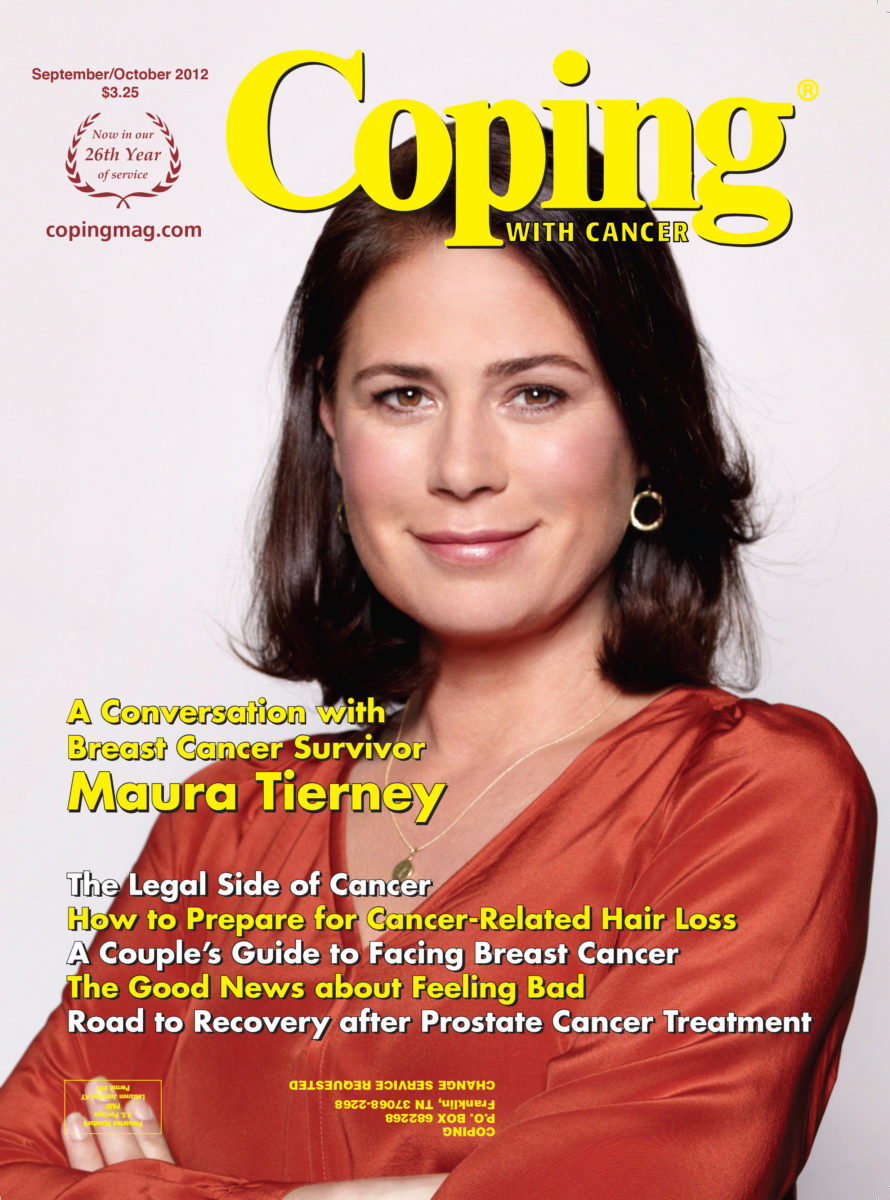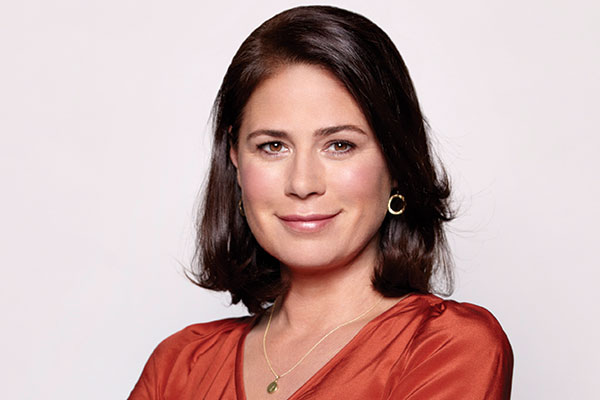A Conversation with Maura Tierney
The Emmy-Nominated Actress Opens Up about Her Breast Cancer
by Jessica Webb
For nearly a decade, actress Maura Tierney played the role of nurse-turned-doctor Abby Lockhart on the hit NBC medical drama ER. Soon after leaving the series, however, her role was reversed. Instead of acting as the doctor, Maura became the patient. And this time, she wasn’t playing a character. This was her reality; she had breast cancer.
Here, Maura opens up to Coping® magazine about her cancer experience and shares how she has teamed up with pharmaceutical company Amgen to help other cancer survivors sort the myths from the facts about chemotherapy.
How did you find out you had breast cancer?
In 2009, I found a lump in my breast. I got a mammogram and unfortunately was diagnosed with cancer. I had a mastectomy and then had to receive chemotherapy treatments after the surgery.
What was the first thing that went through your mind after hearing the diagnosis?
I was very shocked and surprised because of my age. I’ve since learned that it’s not that shocking; there are plenty of young women diagnosed with breast cancer. The first thing I was thinking was, “I’m so young; this can’t be happening to me.” And I was scared because it was all so unknown.
What is the status of your breast cancer now?
I don’t have any, I hope. I’m knocking on wood.
My perspective is still evolving.
What emotional side effects did you face during your treatment?
Emotionally, I was very nervous. When Amgen approached me to participate in their campaign, Chemotherapy: Myths or Facts™, I said yes because it spoke to my own personal experience. I was very, very afraid anticipating the chemotherapy. I had a tremendous amount of anxiety. What this campaign is trying to do is help raise awareness of the myths and facts, information and misinformation about what’s going to happen to you if you have to go through chemotherapy.
What were some of the misconceptions that you had before you went through your treatment?
I was afraid that my lifestyle was going to be completely altered and that I was going to be debilitated. There are other myths out there; people think they can’t eat raw vegetables or fresh fruits, or they can’t hang out with their grandchildren or keep their pets. The truth is everyone’s situation is different, so it’s really important that you speak with your doctor to understand what you can and can’t do while undergoing chemotherapy. It’s not easy. It’s not fun. But it can be – it was for me – manageable.
As a woman, how did breast cancer affect your self-image?
It’s scary to think you have to have a mastectomy, but I had a great plastic surgeon and a great reconstruction. Ultimately, I’m at peace with that, so my image as a woman isn’t so tied up in it, thankfully.
What helped you cope throughout this experience?
Arming yourself with information is really helpful. I trusted my doctors, and I spoke to them a lot. If anything was bothering me, I would call and ask them.
What does life after cancer and being a survivor mean to you personally?
It’s been only two and half years since I finished treatment, so my perspective is still evolving. I have a lot of gratitude, for sure. I’m deeply grateful for my family and for science, technology, and medicine. But I’m still gaining perspective on it all.
What advice do you have for newly diagnosed cancer survivors?
Hang in there. It sounds so simple, but hang in there. That’s what I’m doing. And I would stress an open dialogue with your physician and your caregivers. That way, everybody’s talking to each other. Everybody’s clear about what’s going on.

Chemotherapy: Myths or Facts (ChemoMythsOrFacts.com) aims to debunk common misconceptions about chemotherapy and encourages survivors and caregivers to speak openly with their doctors. As part of the campaign, a video booth has been traveling around the country encouraging survivors and caregivers to record their personal stories of uncovering myths and facts during their cancer experience. “Those videos will be on the website,” says Maura, spokesperson for the campaign, “so it will be a really beautiful personal collage of stories.”
This article was published in Coping® with Cancer magazine, September/October 2012.


